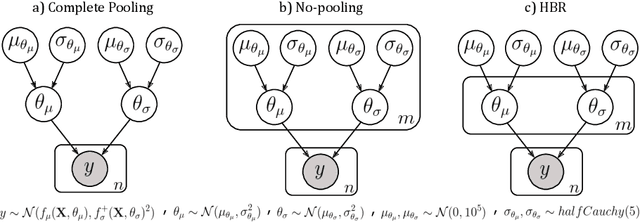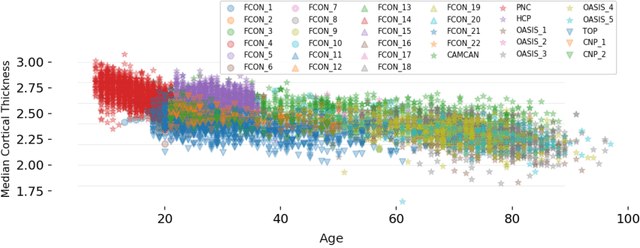Lars T. Westlye
Hierarchical Bayesian Regression for Multi-Site Normative Modeling of Neuroimaging Data
May 25, 2020



Abstract:Clinical neuroimaging has recently witnessed explosive growth in data availability which brings studying heterogeneity in clinical cohorts to the spotlight. Normative modeling is an emerging statistical tool for achieving this objective. However, its application remains technically challenging due to difficulties in properly dealing with nuisance variation, for example due to variability in image acquisition devices. Here, in a fully probabilistic framework, we propose an application of hierarchical Bayesian regression (HBR) for multi-site normative modeling. Our experimental results confirm the superiority of HBR in deriving more accurate normative ranges on large multi-site neuroimaging data compared to widely used methods. This provides the possibility i) to learn the normative range of structural and functional brain measures on large multi-site data; ii) to recalibrate and reuse the learned model on local small data; therefore, HBR closes the technical loop for applying normative modeling as a medical tool for the diagnosis and prognosis of mental disorders.
 Add to Chrome
Add to Chrome Add to Firefox
Add to Firefox Add to Edge
Add to Edge